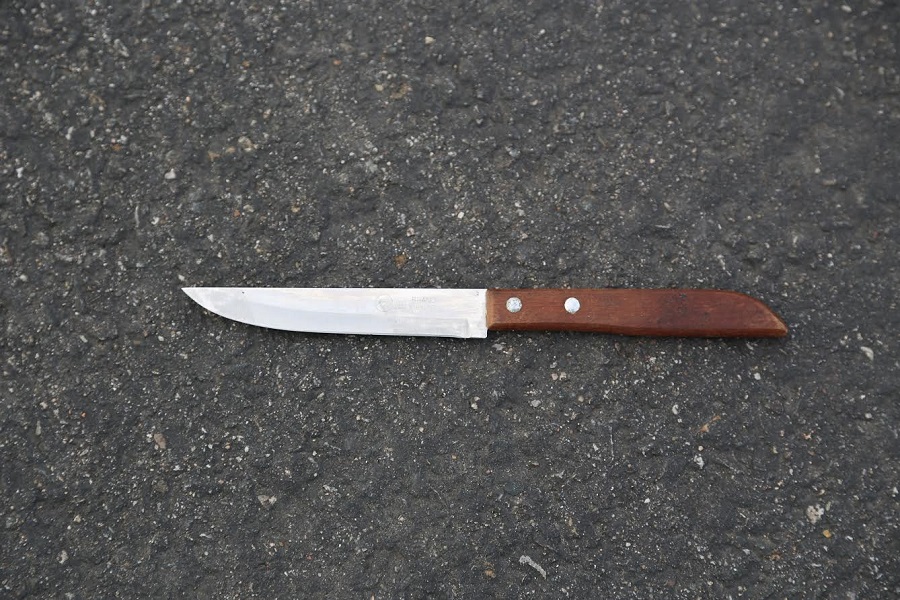A Los Angeles civil jury awarded $9 million to the family of a mentally ill woman who died after being shot by two Long Beach police officers, an attorney announced today.
A central issue in the case was how quickly officers opened fire on Sinuon Pream and what they could have done to avoid using deadly force, according to Brian Dunn, one of the family’s lawyers. The shooting happened within 46 seconds of officers getting out of their car, he said.
“She needed help, not bullets,” said Rodney Diggs, another attorney for the family. “The family is pretty torn up because their mother and their daughter suffered from a sickness that wasn’t her fault.”
Diggs also pointed to an autopsy report that showed that three of Pream’s bullet wounds were to her back.
Dunn said he believes this is the largest ever verdict levied against Long Beach in a police shooting case. City officials weren’t immediately able to confirm that.
Howard Russell, the lead attorney for Long Beach, said in a statement that he’s reviewing the city’s options, which include appealing the jury’s decision.
The union that represents Long Beach police officers criticized the verdict.
“The jury is essentially telling police officers they do not have a right to defend themselves against people who are armed and incredibly dangerous,” Long Beach Police Officers Association president Jim Foster said in a statement. “Officers are put in the horrible position of being blamed for either a lack of response or over response.”
Police shot Pream on the morning of Jan. 15, 2017, when officers Bradley Muhlenkamp and Elieser Domingo were dispatched to the intersection of Seventh Street and Bellflower Boulevard near the Veterans Administration Hospital in Long Beach. They were responding to reports that Pream had been assaulting and threatening civilians with a knife.
Upon arriving at the location, the officers observed the 37-year-old Cambodian woman pushing a shopping cart and waving a knife. The officers, believing Pream to be possibly transient and suffering from a mental illness, ordered her to drop the weapon—a fruit carving knife less than 4 inches long, according to trial testimony. She refused to do so and began moving away from the officers.

The officers then ordered Pream to drop the knife again and, according to the officers, she responded with profanity while proceeding to move away and continuing to wave the knife at them, evidence presented to the jury showed.
Less than a minute later, the officers fired a total of eight total rounds at Pream, hitting her seven times, the jury heard. Muhlenkamp fired seven times, striking Pream six times, and Domingo fired once, striking Pream.
The officers maintained that they fired at Pream because they feared she was attempting to attack Muhlenkamp with the knife.
Foster, the union president, said it was a clear case of self defense. He said they didn’t fire until Pream charged at them.
“We all wish the suspect had not been abandoned to the streets to deal with her mental illness,” Foster said. “We all wish her specific illness had not driven her to violently attack people without provocation.”
Attorneys for Pream’s family accused officers of being over-aggressive, arguing that there was nobody around for Pream to hurt before officers arrived and forcefully confronted her, aggravating the situation.
“This is a 5-foot-2 lady who has had some serious bouts with paranoia,” Dunn said.
Part of the reason the verdict was so large is because Pream’s four children and two parents were all allowed to collect damages against the city, Dunn said.
In handing down their verdict, the eight-member jury in Los Angeles federal court unanimously found that the officers acted with “malice and oppression,” supporting a finding of punitive damages against the officers, according to Dunn. He said the panel additionally found that the shooting incident “shocked the conscience,” which is what allowed Pream’s parents to be compensated for the loss of their familial relationship with their daughter.
“We hope that this verdict will save lives and change the way that the officers in the Long Beach Police Department and other police departments respond to people that are suffering from mental illnesses,” Dunn said.
The Pream family thanked the jury for its finding, which was reached Friday evening following a week-long trial.
“As we mourned Sinuon’s death these last two years, we remained confused and devastated, not knowing how or why it happened,” the family said in a statement. “While this was an extremely tough week at trial, hearing the full details of what actually happened and receiving this verdict makes us feel like we have finally received justice. We hope Sinuon’s soul can finally rest in peace.”
Editor’s note: An earlier version of this story reported the verdict was $9.8 million. Dunn clarified the verdict was closer to $9 million when properly calculated.

